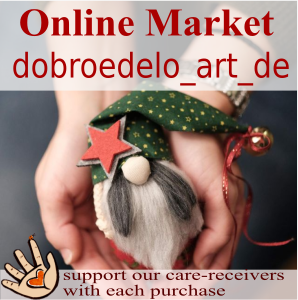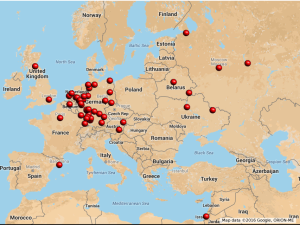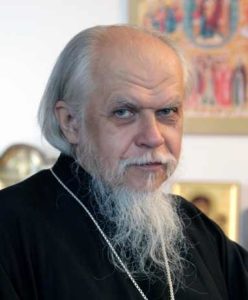 Bishop of Orekhovo-Zuevо, Vicar of the Patriarch of Moscow and All Russia, Head of the Synodal Department for Church Charity and Social Service of the Russian Orthodox Church, spiritual mentor of the St. Dimitry School of Sisters of Mercy, the leader and the spiritual mentor of the largest Orthodox humanitarian aid service “Miloserdie”. He is ordained in 1978. In 2010, he was promoted to the rank of archimandrite. He is a widower, has 4 grown-up daughters, and 20 grandchildren.
Bishop of Orekhovo-Zuevо, Vicar of the Patriarch of Moscow and All Russia, Head of the Synodal Department for Church Charity and Social Service of the Russian Orthodox Church, spiritual mentor of the St. Dimitry School of Sisters of Mercy, the leader and the spiritual mentor of the largest Orthodox humanitarian aid service “Miloserdie”. He is ordained in 1978. In 2010, he was promoted to the rank of archimandrite. He is a widower, has 4 grown-up daughters, and 20 grandchildren.
Vladyka was at the origin of the revival of the sisterhood in the 1990s. Yet to a wide circle of people he is best known as the founder of “Miloserdie” aid service, which today already has 27 projects aimed at helping various categories of people in need: children and adults with disabilities, orphans, lonely and elderly people, pregnant women and women with children, homeless, large families, low-income people, patients of medical institutions. These include the “Angar Spasenia” -“Hangar of Salvation” for homeless folk, the crisis center “Dom dlya mamy” – “Home for mother”, St. Sophia’s Social House, St. Spiridon almshouse, “Elizaveisky Sad” and others. According to the RusFund rating of 2016, the Orthodox aid service “Miloserdie” belongs to the top 10 fund-raising charity foundations in Russia. According to a study by the Donors Forum, it is ranked 5th by frequency of mentioning in the media among Russian charity foundations.
In addition, Bishop Panteleimon devotes plenty of time to the volunteers and the care-receivers: he holds thematic meetings and talks, where he answers spiritual questions as well as the questions of vital importance, provides lectures and joint liturgies that unite “Miloserdie” volunteers, conduct on a regular basis the prayer services for creating a family for those looking for a spouse. He provides spiritual support, help, and advice. Particularly popular are his presentations “How to learn love,” “On the choice of life partner,” “On Liturgy,” “On confession,” and many others.
At the Volunteer’s Day, Vladyka will talk about the importance of volunteering in Christian life. He will be available for questions, can give a useful advice required, and converse in a friendly atmosphere with all the participants.
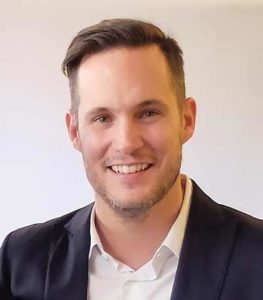 (Pascal Lépine) the head of Atypic, Canada’s leading consulting company for non-profit sector.
(Pascal Lépine) the head of Atypic, Canada’s leading consulting company for non-profit sector.
He studied French literature and was about to become a poet. However, at the age of 22 he has started his business and for more than 20 years has been engaged in raising funds for non-profit and charity organizations. Pascal Lépine was consulting top management in such well-known companies as IBM, ING, Accor, KPMG and BT. Today, his company Atypic has more than 70 clients from various fields: health care, education, culture and art, the environment.
Pascal supports many projects from his personal funds. He is also the owner of the website engagés.ca. Along with the development of business, he is now spending his free time to the project “Imagine Canada”.
From Pascal Lépine, you can learn how the nonprofit sector in Canada works. He will share many years of successful experience and vivid examples of effective actions, present in detail the key points of fund-raising, the platforms for attracting people to donate, the impact of modern technologies and will also answer your questions.
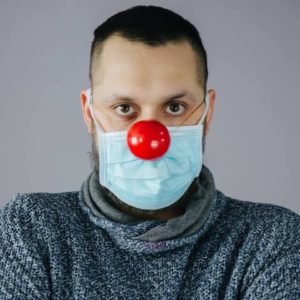 the leading professional hospital clown in Russia. He graduated from the Law Faculty of the Higher School of Economics, yet after a year of work, he has dramatically changed his life to became a clown volunteer at the Russian Children’s Clinical Hospital (RCCH). As a student, he has already attended an amateur theater studio at the institute, but best of all he was fascinated by clownery. At the RCCH, he has worked with children who survived the tragedy of Beslan, natural disasters, cancer and other severe illnesses.
the leading professional hospital clown in Russia. He graduated from the Law Faculty of the Higher School of Economics, yet after a year of work, he has dramatically changed his life to became a clown volunteer at the Russian Children’s Clinical Hospital (RCCH). As a student, he has already attended an amateur theater studio at the institute, but best of all he was fascinated by clownery. At the RCCH, he has worked with children who survived the tragedy of Beslan, natural disasters, cancer and other severe illnesses.
He studied in Portugal, was trained in Paris, the Netherlands, Israel, Austria, Spain. In 2011 he has created the professional organization “Bolnichnye Klouny” – “Hospital Clowns” and became its art director, the main performer and the mastermind. Today, 60 clowns in various regions of Russia help children to fight the diseases with jokes and laughter. “Hospital clowns” makes 2400 visits to hospitals per year, 6000 meetings with children per month and 32 hours per week devoted to communication with children. The clowns work on regular basis in Rostov, Kazan, Orel, St. Petersburg, Ryazan. Now it is a charity program of persistent social and psychological assistance to children, undergoing long-term treatment in medical institutions or living in social institutions, by means of hospital clownery.
From Konstantin you can learn more about the activities of “Hospital Clowns”, about the tasks and projects, the “tricks” that help and the difficulties that arise, you can talk about creative “keys”, the perception of children’s grief and everything that is important when dealing with seriously ill children, as well as with their doctors and parents.
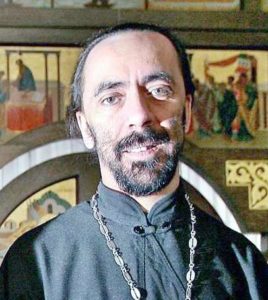 spiritual mentor and friend of “Good Deed”, was, together with Alina Titova, at the origin of establishing the Russian Orthodox Diakonia in Germany.
spiritual mentor and friend of “Good Deed”, was, together with Alina Titova, at the origin of establishing the Russian Orthodox Diakonia in Germany.
He was born in Moscow. He has emigrated with his family to New York in 1977. Since 1983 he lives in Germany. He graduated from the Faculty of Mathematics at the University of Munich.
In 1990, Ilya Limberger was ordained a priest and appointed to the parish of St. Nicholas in Stuttgart.
Archpriest Ilya is actively engaged in the work with Orthodox youth in Germany. He is a member of the youth council at the Synod of Russian Orthodox Church Outside Russia. He speaks Russian, German, English and Serbian. He is the father of five children.
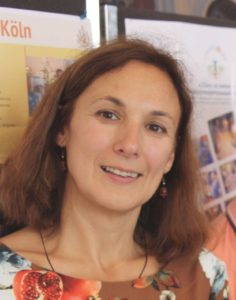 the organizer and leader of the volunteer organization “Russian Orthodox Diakonia in Europe “Good Deed””. In the past, she was publishing a Russian newspaper in Europe. Once she has posted an announcement about an ill child who required help. Since then, helping ill children has gradually replaced the publishing activities. Like-minded people came and helped to organize this assistance. After some time it became clear that the personal help is not enough, and there is a need in an organization to create a system for help.
the organizer and leader of the volunteer organization “Russian Orthodox Diakonia in Europe “Good Deed””. In the past, she was publishing a Russian newspaper in Europe. Once she has posted an announcement about an ill child who required help. Since then, helping ill children has gradually replaced the publishing activities. Like-minded people came and helped to organize this assistance. After some time it became clear that the personal help is not enough, and there is a need in an organization to create a system for help.
This is how the Diakonia emerged. And, despite the fact that “Good Deed” is a completely voluntary organization and all activities are based on the enthusiasm of the volunteers, the organization has the clear-cut structure and provides a coordinated work of all its memers.


